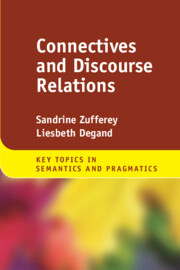A good knowledge of connectives like moreover and therefore is crucial for reading comprehension and academic success, yet not all connectives, especially infrequent connectives mostly used in writing, are well mastered even by adults. The main goal of this paper is to assess the possibility to improve the ability to use connectives in discourse during the transitional teenage years. To do so, we examined whether 228 native French-speaking teenagers and 60 adults improved their performance with eight infrequent (prototypical and non-prototypical) connectives in a sentence-completion task after active or passive training. The results revealed that training had only a limited effect on the ability to use both types of connectives, while the degree of exposure to print was an important predictor of individual variations. These findings suggest that connectives’ mastery depends more on exposure to extensive written input that allows to internalize their procedural meaning over time rather than on one-time explicit activation of the mapping between their form and function.
